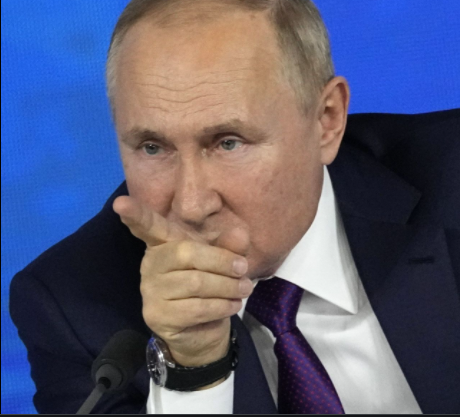Virendra Pandit
New Delhi: With the West unwilling to inflict a wound so far, Russia on Thursday invaded the former Soviet republic, Ukraine, pushing the pandemic-afflicted world into a tailspin, as China blamed the West for the crisis, markets crashed worldwide and crude price crossed USD 100 a barrel for the first time since 2014.
Early media reports quoting Ukraine said at least seven people were killed and nine wounded by Russian shelling. They reported explosions in several areas of Ukraine and air sirens went off in Kyiv, showing the capital city was under attack. The Russian defense ministry said Ukraine’s air bases and military infrastructure had been neutralized. Russian-backed separatists claimed control of two towns in the Luhansk region of Ukraine.
And both sides made claims and counterclaims.
Why has Russia, the sixth most Covid-19 affected country, risked a potentially expensive war? Would it be a misadventure?
According to Stefan Romanów, chairperson of the Australian Federation of Ukrainian Organisations, President Vladimir Putin is on the record as saying the biggest disaster of the 20th century was the fall of the Soviet Union. “And he will work towards bringing it back together again,” he told Sky News Australia.
“This is his ambition,” the media quoted him as saying.
On Thursday, President Putin said he ordered a special military operation to “protect” the separatist, pro-Russia Donbas region of eastern Ukraine—which Moscow has already recognized—and cited the need to “demilitarize” the country. He also accused the US of crossing Russia’s “red line” by trying to expand NATO right up to the Russian borders.
While stressing that Russia would “demilitarize” Ukraine, however, Putin claimed Moscow did not plan to occupy it. He also appealed to the Ukrainian soldiers to put down their arms.
US President Joe Biden, whose popularity ratings at home and overseas plummeted steeply within a year, condemned it as an “unprovoked and unjustified attack by Russian military forces” on Ukraine. NATO Secretary-General Jens Stoltenberg said it was a “serious threat to Euro-Atlantic security.”
Putin, a product of the Cold War, had worked in the old Soviet intelligence service, the KGB, where he viewed the superpower rivalry and nuclear stalemate from close quarters. After the USSR’s collapse, he claimed, he had to work as a taxi driver to earn extra money.
When he became the President in 2000, he famously called the collapse of the Soviet Union in 1991 a “genuine tragedy” and “the greatest geopolitical catastrophe” of the twentieth century.
No wonder, the way the collapse of the Second Reich in 1918 provoked Adolf Hitler to recreate the Third briefly (1933-45), Putin may also try to put the USSR back in shape. Hitler wanted lebensraum (living space) for Germany; Putin wants ‘strategic depth’ for Russia to shield it from Europe.
That is why when Ukraine tried to become a NATO member, the Russian President may have thought his time had come. Interestingly, many in Russia also want to join the European Union and NATO, but Europe is afraid of inviting an elephant into their room. That is why the Continent has been keeping Moscow away, not for decades but for a couple of centuries.
As Europe made it an ‘outcaste’, a peeved Russia has since been taking on the Continent. Its expansion in Asia made it safer from the armies of Napoleon and Hitler, which sank in the Siberian icy deserts in the early 19th and mid-20th centuries.
The West, being democratic, takes time to react to such provocations. If it reacts substantially, the Ukrainian crisis could blow up in a full-scale war. Russia and China may have powerful war machines, but they are far behind the West in innovative, emerging, and future technologies. Without sending their armies or nuclear missiles, the West can remotely deactivate, cut off supply lines, and drag them into protracted and extremely expensive wars.
By deploying around 200,000 Russian troops on the Ukrainian borders, Moscow may repeat the blunders of Putin’s Soviet predecessors. His ‘misadventure’ has alarmed the former Soviet republics, united the West and the Rest, and even put China on notice, forcing Beijing to side with Moscow for now.

